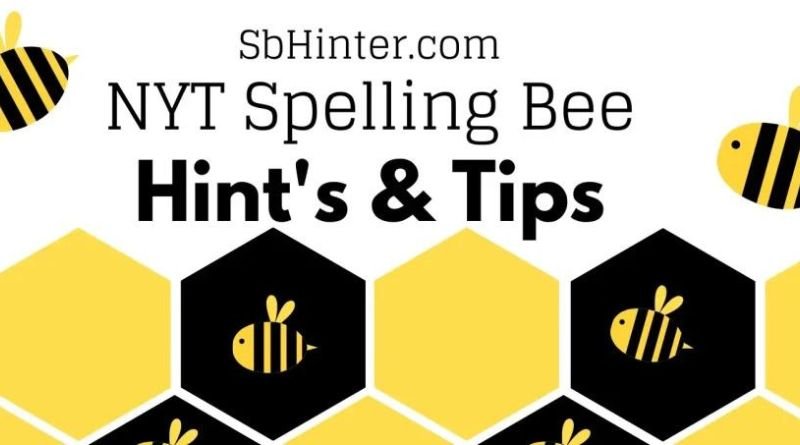Participating in a spelling bee can be an exhilarating yet nerve-wracking experience. Whether you’re a student preparing for your school’s competition or a parent seeking to support your child, understanding the ins and outs of spelling bees can make all the difference. This article will provide you with essential hints and strategies to help you or your child excel in spelling competitions.
Table of Contents
Understanding the Spelling Bee
Before diving into specific hints and tips, it’s crucial to understand what a spelling bee entails. A spelling bee is a competition in which contestants are asked to spell a broad selection of words, usually with a specific difficulty level. The goal is simple: to correctly spell words provided by the judges, often in a timed format. Competitions can vary in scale from local school bees to national and even international contests.
The Importance of Preparation
Preparation is key to success in any spelling bee. Here are some steps to help you get started:
- Familiarize Yourself with the Format:
- Different spelling bees may have different formats. Some might allow contestants to ask for the word’s definition or use it in a sentence, while others may not. Knowing the rules will help you feel more confident on stage.
- Study the Word List:
- Many competitions provide a word list or a study guide. Make sure to obtain this list and go through it thoroughly. Create flashcards for difficult words and review them regularly.
- Practice Regularly:
- Consistent practice is essential. Set aside time each day to spell words aloud, focusing on pronunciation and enunciation. This will also help you become more comfortable speaking in front of an audience.
- Utilize Online Resources:
- There are many online platforms and apps designed specifically for spelling bee preparation. Websites often provide quizzes, word lists, and games to make studying more engaging.
Effective Study Techniques
To maximize your preparation, consider employing these effective study techniques:
- Break Words into Syllables:
- Understanding the syllable structure of a word can help you break it down into manageable parts. For example, the word “extraordinary” can be broken down into ex-tra-or-di-na-ry. This technique simplifies the spelling process.
- Learn Word Origins:
- Knowing the origin of a word can provide clues about its spelling. Many words have Latin or Greek roots, and understanding these can help you recognize patterns and common prefixes and suffixes.
- Practice with a Partner:
- Working with a friend or family member can be beneficial. They can quiz you on the words, and you can practice spelling them aloud. This interaction can make studying more enjoyable and less isolating.
- Record and Review:
- Record yourself spelling difficult words and play it back. Listening to yourself can help reinforce memory. Additionally, reviewing common misspellings can help you avoid repeating mistakes.
- Use Mnemonics:
- Create mnemonic devices to help remember tricky spellings. For instance, for the word “necessary,” you might think of “one collar and two sleeves” to remember that there is one “c” and two “s” in the spelling.
Day of the Competition
When the day of the competition arrives, it’s important to stay calm and focused. Here are some helpful hints for the big day:
- Arrive Early:
- Give yourself plenty of time to check in and get settled. Rushing can lead to unnecessary anxiety. Use this time to mentally prepare and review a few words in your mind.
- Stay Hydrated and Eat Light:
- Make sure to drink water and eat a light meal before the competition. Avoid heavy foods that might make you feel sluggish or uncomfortable.
- Practice Relaxation Techniques:
- Use deep breathing exercises to help manage nerves. Take deep breaths in through your nose, hold for a few seconds, and exhale slowly through your mouth.
- Listen Carefully:
- When it’s your turn, listen closely to the judge’s instructions. Pay attention to the pronunciation of the word, and don’t hesitate to ask for clarification if needed.
- Think Before You Spell:
- Take a moment to visualize the word in your mind. This can help you recall its spelling more effectively.
Building Confidence
Building confidence is a critical part of succeeding in a spelling bee. Here are some strategies to boost your self-assurance:
- Positive Affirmations:
- Use positive affirmations to build your confidence. Remind yourself of your hard work and dedication. Phrases like “I am well-prepared” or “I can spell this word” can be powerful motivators.
- Visualize Success:
- Spend a few moments visualizing yourself on stage, spelling words correctly and receiving applause. Visualization can enhance confidence and reduce performance anxiety.
- Accept Mistakes:
- Remember that everyone makes mistakes. If you do miss a word, don’t dwell on it. Focus on doing your best and learning from the experience.
- Celebrate Small Wins:
- Each time you correctly spell a word during practice or a competition, celebrate it! Recognizing your progress can boost your motivation and confidence.
After the Competition
Regardless of the outcome, take the time to reflect on your experience:
- Review Your Performance:
- After the competition, reflect on what went well and what areas you can improve. This will help you in future competitions.
- Seek Feedback:
- If possible, ask the judges for feedback on your performance. This can provide valuable insights for your next spelling bee.
- Stay Engaged:
- If you enjoyed the experience, consider participating in more spelling bees. Engaging in ongoing practice will help you sharpen your skills and become more comfortable in competitive settings.
- Encourage Others:
- Share your experience with peers or younger students. Encourage them to participate in spelling bees, fostering a love for words and language.
Frequently Asked Questions (FAQs)
1. What age groups participate in spelling bees?
Spelling bees typically involve participants ranging from elementary school students to adults. Many schools and organizations host competitions for different age categories.
2. How can I find local spelling bee competitions?
You can check with local schools, libraries, or community centers for information about upcoming spelling bee competitions. Websites like the Scripps National Spelling Bee also provide details on local events.
3. What resources are best for studying spelling words?
Online platforms such as spelling bee apps, websites with quizzes, and printed word lists from spelling organizations can be very helpful. Additionally, flashcards and study groups can enhance your preparation.
4. Are there specific strategies for learning difficult words?
Yes! Breaking words into syllables, understanding their origins, and creating mnemonics are all effective strategies for mastering challenging spellings.
5. What should I do if I get nervous before competing?
Practice deep breathing, visualization techniques, and positive affirmations to manage nerves. Arriving early and being well-prepared can also help alleviate anxiety.
6. What is the significance of spelling bees?
Spelling bees foster a love for language and literacy. They encourage participants to enhance their vocabulary and spelling skills, which are valuable throughout life.
Conclusion
Participating in a spelling bee can be a fulfilling and educational experience. With the right preparation, strategies, and mindset, anyone can improve their spelling abilities and perform well in competitions. Remember, the journey of mastering spelling words is just as important as the final outcome. Embrace the process, enjoy the learning experience, and most importantly, have fun!



